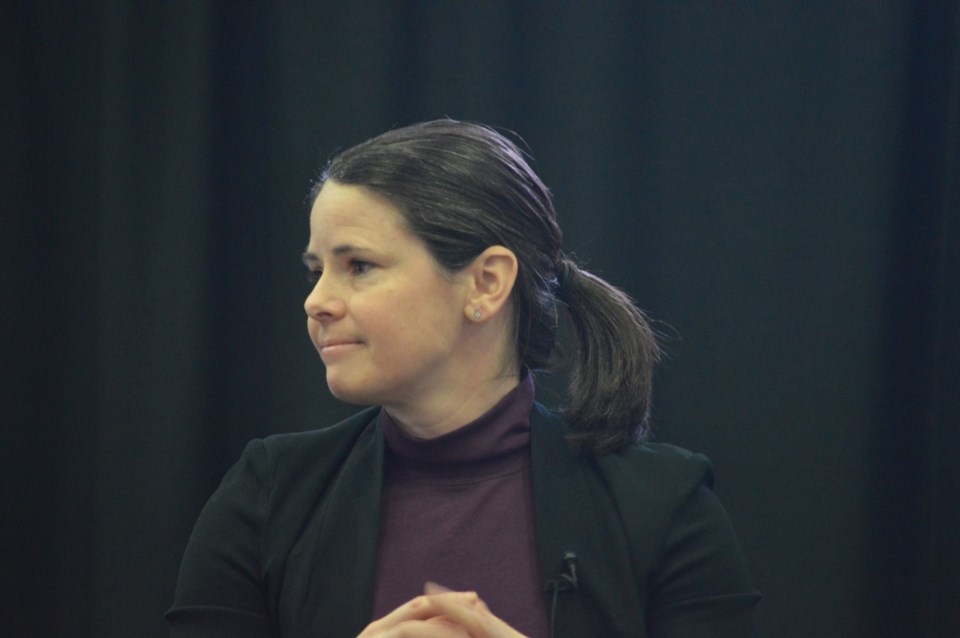What is lacking in Canadian women’s soccer is support for the sport and the women in it.
This was the takeaway from keynote speaker Diana Matheson, former professional player and Canadian national team member who was a two-time Olympic bronze medallist.
She spoke to a room of over a hundred people, including the Guelph Gryphon football team, at the HeForShe event at the University of Guelph Wednesday.
HeForShe is an initiative from the United Nations to guide men to stand in solidarity with women to bring an equitable future for gender equality.
The biggest gap for allyship in women’s soccer is support, said Matheson.
Support means buying a jersey, watching a game, sharing on social media, to name a few, she said.
Pay equity and disparity among women’s and men’s soccer leagues and national teams, a hot topic of late, was not touched on during the event.
The investment in women's soccer outside of Canada, on an international level has been on the backs of men's soccer leagues, Matheson said.
"Where in Canada we never really had that option. We have three MLS (Major League Soccer) teams, they're all losing money. We have a men's team that's very new. So the way it grew over the rest of the world we don't really have here."
The greatest barrier she has faced while trying to build a women’s professional soccer league in Canada is “the politics in soccer,” she said.
Matheson started her own company called Project 8, so women could call all the shots, she said.
“If you’re not getting where you want to go in an environment that’s not appreciating you,” said Matheson. “But I think I’ve seen that in my friends, they end up going on to bigger and better things in other places.”
There is potential for the women’s professional soccer league, launching in 2025, to have a team in either Kitchener-Waterloo, or Guelph she said. There will be two teams in Ontario.
As a woman in soccer she faced obstacles on and off the field, including two injuries which had her benched.
Back in 2012 when John Herdman was hired by Canada Soccer to coach the women’s national soccer team, their rallying cry was “we are going to leave Canadian soccer better than we found it,” said Matheson.
Women soccer players still use the same phrase today, she said.
How they achieved what they were preaching, they were determined to get on the podium and secure a medal for Canada.
They came, they saw, they conquered, and brought home a bronze medal after defeating France in the 2012 Olympics in London, England.
Matheson brought a lot of resilience to the rest of her career in soccer. With the lead up to the 2015 FIFA Women’s World Cup, she tore her ACL seven months before she had to compete. Three months until the game, she broke her foot.
After lots of rehab and a change in perspective of how she could support her team she was able to play during some of the knock-out games in the World Cup, but Canada was defeated.
